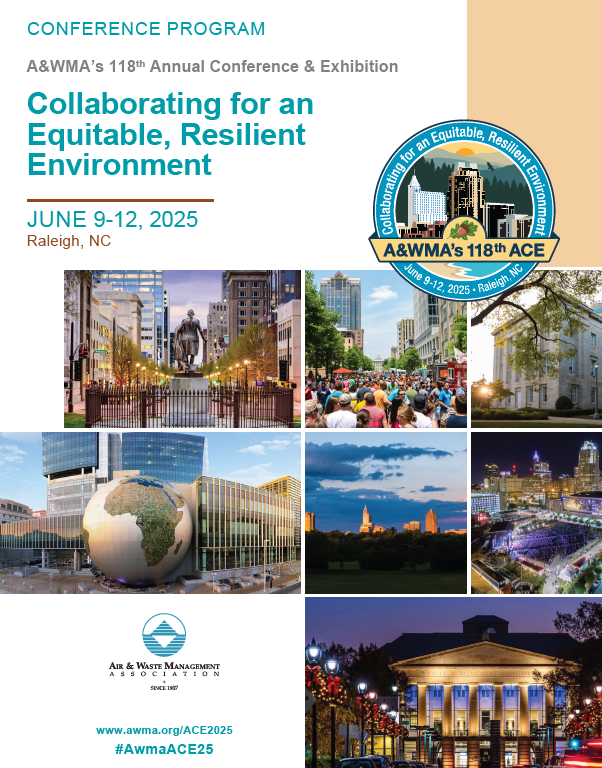ACE 2025
CLIM
Greenhouse Gas Emissions: Disclosure and Decarbonizing
Biogas Potential for Decarbonizing Maritime Transportation in Qatar
Wednesday, June 11, 2025
10:30am – 10:50am ET
Location: 302A

Sophia Ghanimeh, PhD
Research Associate Professor
Qatar University, Ad Dawhah, Qatar
Batool A. Rezqalla, MSc.
Qatar University
- HM
Hashmi Muhammad
Qatar University
- EA
Elias Abou Jawdeh
Senior Logisicts Professional
Author(s)
Co-Author(s)
Abstract Description: The decarbonization of the maritime industry has become a hot research topic due to the sector’s continuous growth and its heavy reliance on fossil fuel. According to forecasts, the demand for marine fuel is expected to double by 2030, and GHG emissions, which currently account for 3% of total global emissions, are projected to increase by 50 - 250% by 2050.
This analysis addresses the contemporary issue of decarbonization of the shipping industry in Qatar – a GCC country where a lot remains to be done in this respect. A comparative review is done on four selected alternative fuels: Liquefied Natural Gas (LNG), Methanol, Biodiesel, and Biogas. Those were comparatively assessed based on their technical maturity, economic implications and environmental sustainability.
Amongst the analyzed alternative fuels, LNG is considered the best fossil-based replacement option and is currently the most adopted alternative fuel in ships (520 vessels worldwide). Among non-fossil fuels, methanol comes as the second used alternative fuel in the maritime sector (29 vessels worldwide). Biodiesel is commonly mixed to form blends with traditional fossil fuels, allowing for partial replacements without the need for engine modifications – thus considered a mean for gradual transitions to clean fuel. Biogas (or biomethane) is produced from sustainable organic substances (often wastes), making it the most environmentally friendly – notably in terms of GHG emissions.
From an economic perspective, biogas prices and operational costs are comparable to (and at times higher than) other alternative fuels. However, biogas generation through Anaerobic Digestion (AD) is already incorporated in the Domestic Solid Waste Management Center in Doha – the main waste management facility in Qatar. Accordingly, the capital cost (or a major part of it) is already invested by the government. This allows the incorporation of subsidies and other economic tools – in case favorable strategic decisions are made.
Therefore, this analysis assessed the potential impacts of using biogas for fossil fuel substitution in ships. Only the generation from waste streams is considered – given that energy crop cultivation is not strategically effective in Qatar. According to an ongoing research by this team, the biogas generation from AD of major organic wastes in Qatar can reach 850 million m3 per year. If the whole amount of biogas is used as alternative fuel in the shipping industry, the total GHG savings would reach around 2 million metric tons of CO2-eq per year.
This analysis addresses the contemporary issue of decarbonization of the shipping industry in Qatar – a GCC country where a lot remains to be done in this respect. A comparative review is done on four selected alternative fuels: Liquefied Natural Gas (LNG), Methanol, Biodiesel, and Biogas. Those were comparatively assessed based on their technical maturity, economic implications and environmental sustainability.
Amongst the analyzed alternative fuels, LNG is considered the best fossil-based replacement option and is currently the most adopted alternative fuel in ships (520 vessels worldwide). Among non-fossil fuels, methanol comes as the second used alternative fuel in the maritime sector (29 vessels worldwide). Biodiesel is commonly mixed to form blends with traditional fossil fuels, allowing for partial replacements without the need for engine modifications – thus considered a mean for gradual transitions to clean fuel. Biogas (or biomethane) is produced from sustainable organic substances (often wastes), making it the most environmentally friendly – notably in terms of GHG emissions.
From an economic perspective, biogas prices and operational costs are comparable to (and at times higher than) other alternative fuels. However, biogas generation through Anaerobic Digestion (AD) is already incorporated in the Domestic Solid Waste Management Center in Doha – the main waste management facility in Qatar. Accordingly, the capital cost (or a major part of it) is already invested by the government. This allows the incorporation of subsidies and other economic tools – in case favorable strategic decisions are made.
Therefore, this analysis assessed the potential impacts of using biogas for fossil fuel substitution in ships. Only the generation from waste streams is considered – given that energy crop cultivation is not strategically effective in Qatar. According to an ongoing research by this team, the biogas generation from AD of major organic wastes in Qatar can reach 850 million m3 per year. If the whole amount of biogas is used as alternative fuel in the shipping industry, the total GHG savings would reach around 2 million metric tons of CO2-eq per year.

